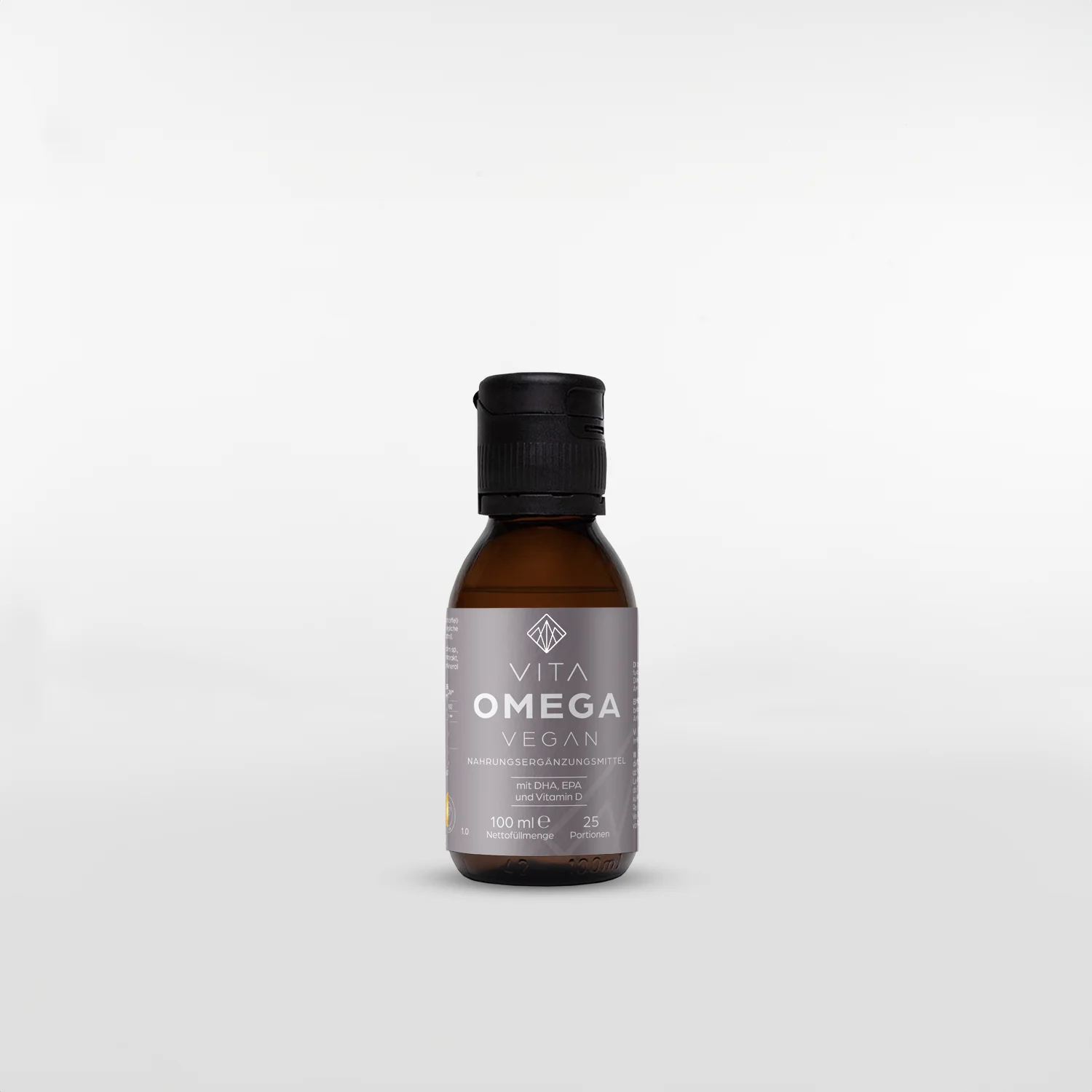
Algae in the Spotlight
Gesunder Lifestyle
22.04.2025
Rene Tischhart
Surprising Facts About Omega-3 Fatty Acids from Algae
Do you think of the vegan algae-based option when it comes to Omega-3?
In our fast-paced world, we're constantly looking for the “perfect” solution for our health. When it comes to Omega-3 fatty acids, most people immediately think of fish oils. But the true potential of sustainably sourced algae often goes unnoticed. Additionally, the outdated myth still circulates that the necessary amounts of EPA (eicosapentaenoic acid) and DHA (docosahexaenoic acid) can only be obtained through fish oil. In fact, the scientifically backed health benefits of Omega-3 fatty acids continue to grow, and surveys show that 64% of consumers worldwide would switch to a plant-based Omega-3 alternative if it were available.
A complete alternative for vegetarians and vegans
But algae oil doesn’t just outperform fish. Other plant-based Omega-3 sources like flaxseeds or chia seeds are generally less effective. Instead of the long-chain Omega-3s (EPA and DHA), they mostly contain the short-chain precursor ALA (alpha-linolenic acid). How much of it the body can convert into the valuable long-chain forms is debated. That’s why a high-quality supplement made from algae oil is especially important for those following a vegan or vegetarian diet.
High-quality source of essential fatty acids DHA and EPA
Several studies show that DHA and EPA derived from algae oil provide the same medical benefits as those from fish. Imagine breathing in a fresh ocean breeze as gentle waves pulse in rhythm with your heart – that’s the effect EPA and DHA have on our bodies. According to health claims supported by studies, a daily intake of 250 mg of EPA and DHA not only supports normal heart function but also promotes mental clarity and eye health. For anyone looking for a natural “wellness program” from within, these marine nutrient powerhouses offer a gentle yet incredibly effective ally for overall health and well-being.
Back to the source at the beginning of the food chain
Although fish is commonly seen as THE Omega-3 food, few people know that fish can’t actually produce EPA and DHA themselves. In reality, all Omega-3s obtained from fish originally come from microalgae. These are eaten by plankton, which in turn is eaten by fish (microalgae > plankton > fish). Choosing Omega-3 from algae means going directly to the source – while protecting precious marine ecosystems.
Faster, purer, more sustainable – how algae protect our fish stocks
Turning directly to the source – algae – kills several birds with one stone: we eliminate many steps in the marine food chain, protect fish stocks, and still receive a highly concentrated Omega-3 product. Especially in times of increasing environmental stress, this direct route is not only logical but also a meaningful contribution to ocean conservation and responsible resource use. Algae thrive in a relatively short time – they can be cultivated and processed into Omega-3-rich oil in just 25 days, compared to the 24 months or more needed for fish oil. This shortened maturation process results in a fresher and purer Omega-3 product.
Algae oil impresses with freshness and purity
The growing pollution of the oceans poses major challenges for fisheries today. Fish-derived oil must undergo extensive purification processes to achieve an acceptable level of contaminant safety. Algae, on the other hand, are cultivated in closed indoor systems. As a result, they are significantly less exposed to environmental toxins such as heavy metals or pollutants, and the oil extracted is naturally very pure. Furthermore, these controlled systems typically lead to less oxidation, meaning algae oil often scores better in TOTOX values (a key measure of oil freshness) than fish oil in practice.
So what could make more sense than choosing a carefully crafted, high-quality algae oil as your reliable health companion?
Empfohlene Produkte
Teilen
vorheriger Beitrag
Die zentrale Bedeutung der Darmflora
nächster Beitrag


